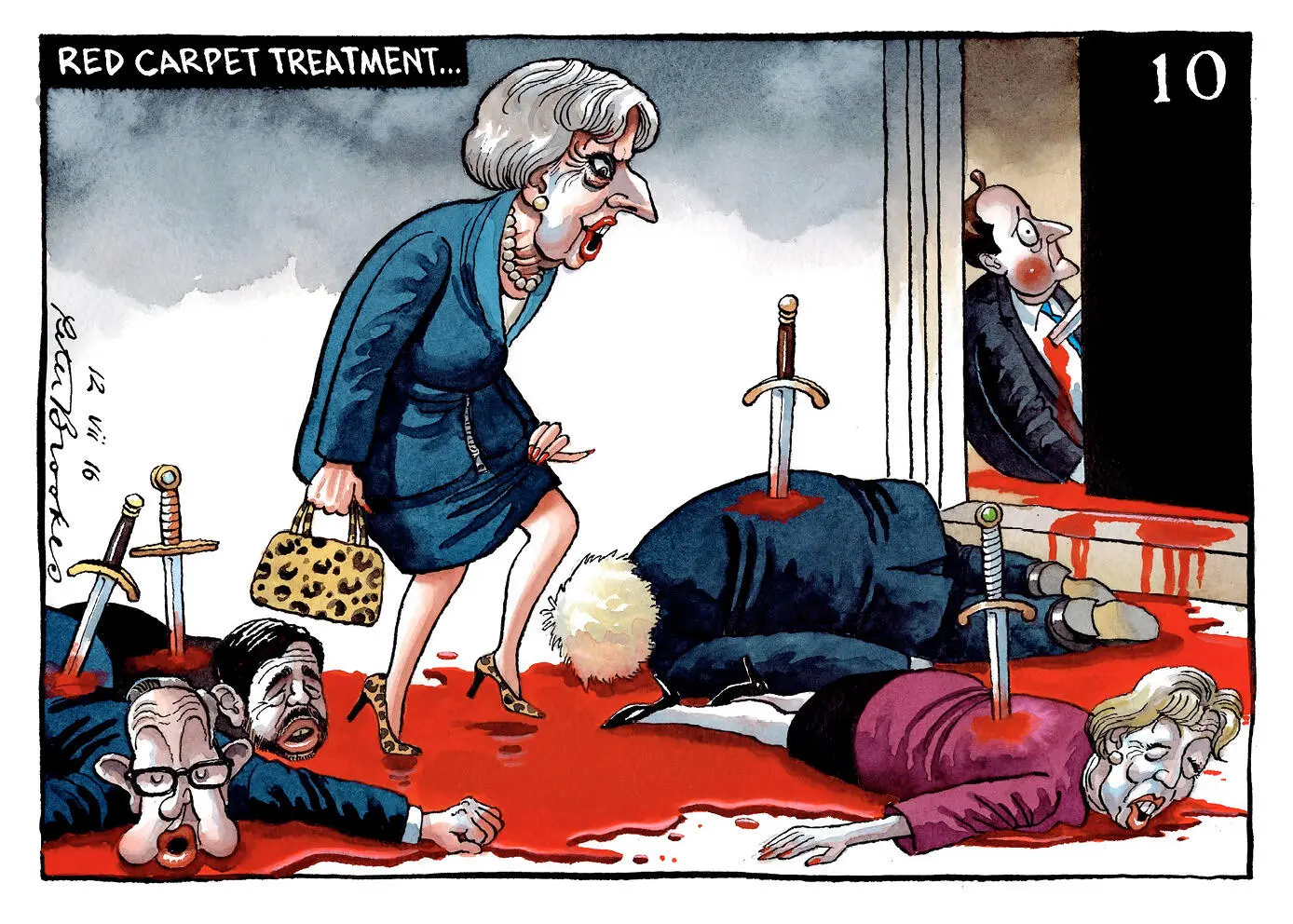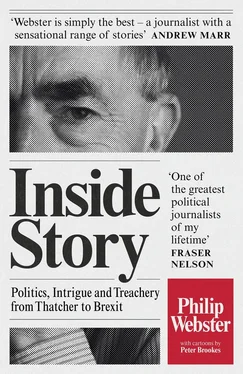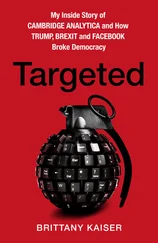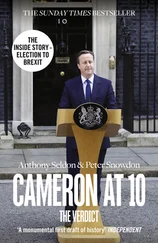As the carnage continued, Johnson backed Leadsom, stressing her trustworthiness in what was clearly a rebuke to Gove. Johnson’s team claimed that Gove had planned his desertion all along and that he had used their man to get the Brexit result and then stabbed him in the back and front, while running over him at the same time. That is denied by Gove’s team, who point to his constant disavowals of interest in the job.
After the first round of voting May was ahead, with Leadsom second and Gove third, his standing obviously harmed by his treatment of Johnson and Johnson’s decision to fall in behind Leadsom. Then came another twist. Boles quietly approached figures in the May campaign and asked if they could ‘lend’ Gove some votes so that he could finish second in the next ballot and keep Leadsom out of the final two-way run-off which would be decided by some 150,000 party members and not the MPs.
May would hear none of it and one of her team, I understand, told Boles that she was ‘going for gold’ and believed that the higher the number of MPs backing her, the greater her chance of defeating Leadsom or Gove, whoever came second. So Boles embarked on an extraordinary freelance operation which probably cost Gove any chance of making the final two.
Boles sent an e-mail to ten friends in the May camp suggesting there was a risk that if Leadsom’s name went through, members might back her because she shared their attitudes to modern life. He added that Gove would not mind taking a ‘good thrashing’ for May in the party’s interest.
By now the political world was immune to shocks in this astonishing saga but the Boles e-mail – which was leaked by a disaffected recipient and swiftly made public by Sam Coates of The Times – took a prize for infamy. Gove, having stopped Boris, was now it seemed prepared to go to any lengths to kill Leadsom’s hopes. This was unfair because Boles did not tell Gove about his manoeuvre. But the damage was done – and fatally.
I reproduce the e-mail in full. It said:
I would be really grateful if you would treat this in strict confidence. You are my friend. I respect the fact that you want Theresa May to be PM. It is overwhelmingly likely that she will be. And if she does I will sleep easily at night.
But I am seriously frightened about the risk of allowing Andrea Leadsom onto the membership ballot. What if Theresa stumbles? Are we really confident that the membership won’t vote for a fresh face who shares their attitudes about much of modern life? Like they did with IDS.
I am not asking you to respond unless you positively want to have a chat. But I hope that you will reflect on this carefully. Michael doesn’t mind spending 2 months taking a good thrashing from Theresa if that’s what it takes but in the party’s interest and the national interest surely we must work together to stop AL? x
Gove had stabbed Johnson, Boris had stabbed Gove, Gove’s friends had tried to stab Andrea. There were times during this period when an hour seemed a long time in politics.
Leadsom finished second in the next ballot and Gove was eliminated. Members were left with a choice between May’s substantial experience, including six years as home secretary, and her cautious but modern conservatism – it was she who first told the party to throw off its ‘nasty’ image – and Leadsom’s appeal to the party’s traditional core values: self-reliance, dislike of regulation, suspicion of social change such as same-sex marriage, and deep Euroscepticism.
The run-off began no less controversially than the early legs of the contest. Leadsom received a barrage of attacks after her ‘motherhood’ remarks to The Times on 9 July 2016. She was criticized by MPs for her lack of experience and naivety. Then on Monday, 11 July, just as May was officially launching her campaign in Birmingham and Cameron was speaking at the Farnborough air show, word emerged that Leadsom had had enough.
Surrounded by her supporters, she came out of her house and said she had decided to withdraw. Although she had won the backing of eighty-four MPs, she said that this was less than twenty-five per cent of the total, which was not enough to lead a strong and stable government if she won the ballot of members. She departed saying it was in the best interests of the country and party that she was no longer a candidate. She made no mention of her notorious interview but she had already apologized to May over it and her friends later spoke of the ‘brutal’ way she had been treated. They added that the contest had come too soon for her and that she had never expected to run.
So eighteen days after Cameron said he was leaving the stage, the three most prominent leaders of the Brexit campaign had been vanquished, their ambitions at best put on hold and at worst killed. They had handed the keys of Number 10 to a minister who had campaigned to stay in the EU.

Now May’s main task was to handle the consequences of that fateful vote. ‘Brexit means Brexit and we are going to make a success of it,’ she said at her launch. Quite what Brexit really means will only become clear in the years ahead, but on one thing May was clear: ‘There will be no attempt to remain in the EU.’
May, though, made plain that she is determined to get the best possible deal for Britain from the negotiations that will set the terms of departure.
She put the astute and pragmatic David Davis, a former Europe minister, in charge of a new department that will implement Brexit. Though he and Johnson backed the ‘Leave’ effort, neither are ideologically ‘anti-Europe’ and May is clearly hoping they can secure an outcome that will maintain some kind of access from outside to the single market while securing concessions on freedom of movement. It may take years.
I covered the removal of Margaret Thatcher as prime minister, as I describe later in this book. Whatever you felt about her, Thatcher’s downfall was a personal tragedy, a Shakespearean drama as the MPs and ministers she had helped to three election victories turned on her because they felt she could not win a fourth. June 2016 was a personal tragedy for Cameron. Whether the nation will regret or embrace the outcome in the long term is impossible to tell. But the aftermath at the top of the Conservative Party seemed at times more like farce than tragedy.
How could it have come to this? How could David Cameron, the man who told his party to stop banging on about Europe, have somehow contrived to take his country out of it? How was it that the PM who earned a reputation as a lucky general ran out of luck when it mattered most?
The story begins with his party’s recent history. Cameron became party leader after he wowed the party faithful in 2005. But his MPs were never as certain about him as his activists were. They were unsure about his efforts to modernize the Tories but went along with him in the expectation that he would see off Gordon Brown easily in 2010 and return them to power. He became prime minister, yes, but only in a coalition with the Liberal Democrats, and his half-victory left many MPs disappointed with him.
23 January 2013 was the day that sealed the fate of Cameron, many in his government and the country. He announced there would be an ‘in-out’ referendum by the end of 2017 at the latest. In October 2011 some eighty-one Tory MPs had demanded a referendum in a Commons vote, showing him the scale of the internal problem he faced. UKIP was on the march, winning the European elections in 2014 while two Tory MPs were to defect and win by-elections under the UKIP banner.
Cameron had agonized discussions with his Cabinet, in private one-on-one conversations and together. I can confirm that both George Osborne and Michael Gove urged him not to do it, Osborne because he feared the country might vote to leave, and Gove because, as a devout sceptic, he could see himself ending up fighting his friend and prime minister.
Читать дальше












